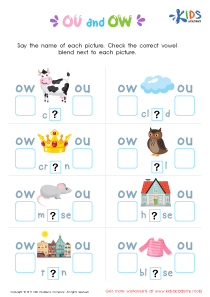Phonics Skills Normal Long And Short Vowel Worksheets for Ages 6-7
9 filtered results
-
From - To
Enhance your child’s reading journey with our expertly crafted Phonics Skills: Normal Long and Short Vowel Worksheets, tailored for ages 6-7. Designed to bolster early literacy, these engaging worksheets help young learners differentiate between long and short vowel sounds, boosting both recognition and pronunciation skills. With a variety of fun exercises, kids practice through colorful illustrations, intriguing stories, and interactive activities. Perfect for both classroom and home use, these resources develop essential phonetic awareness, laying the foundation for proficient reading and spelling. Give your child the tools they need to thrive in their reading adventure!
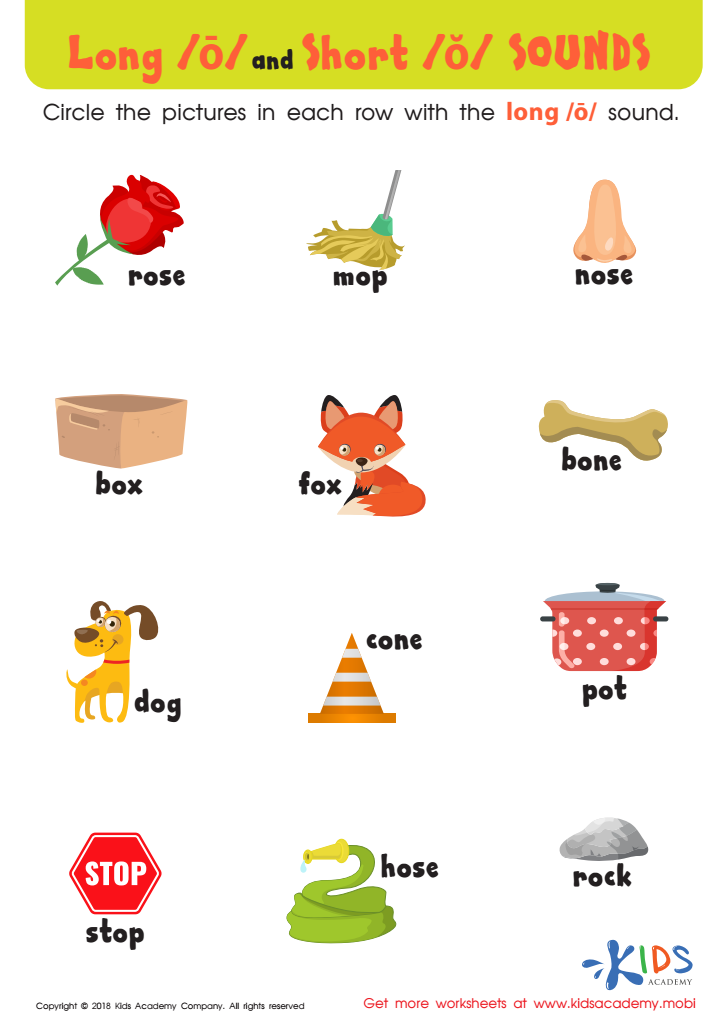

Reading: Long O and Short O Sounds Worksheet
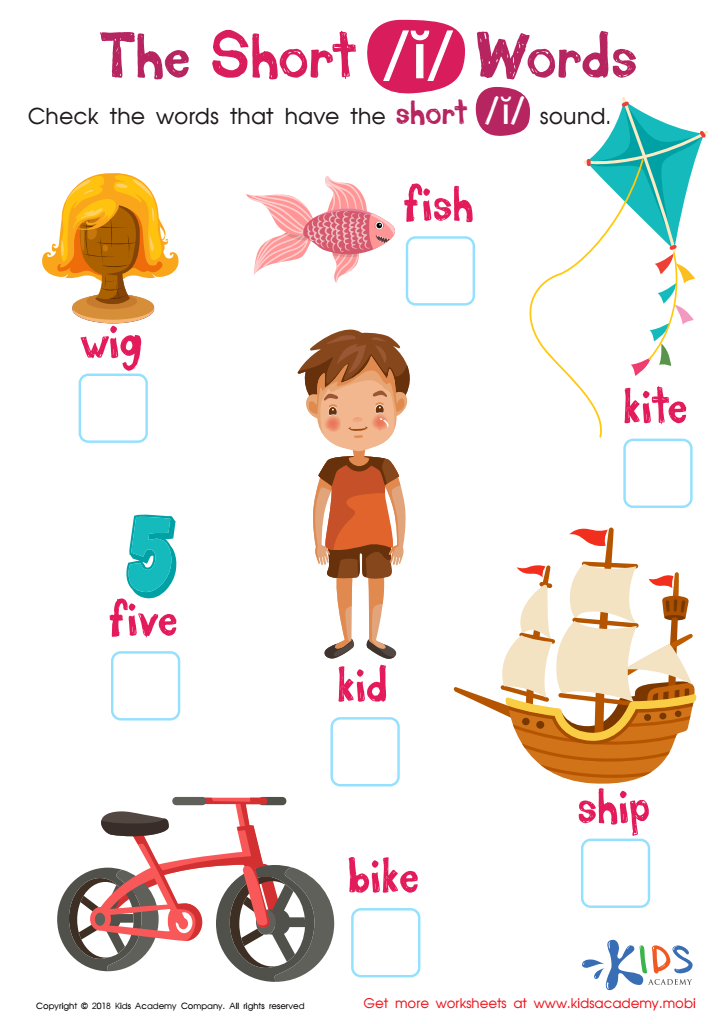

The Short I Words Reading Worksheet
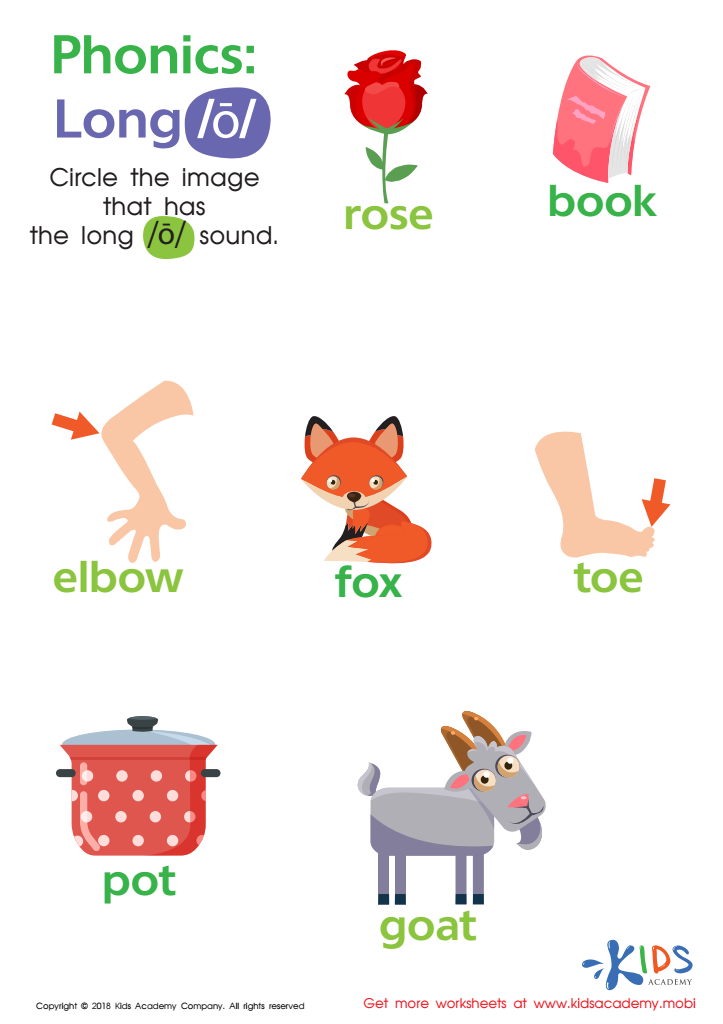

Phonics Long O Reading Worksheet
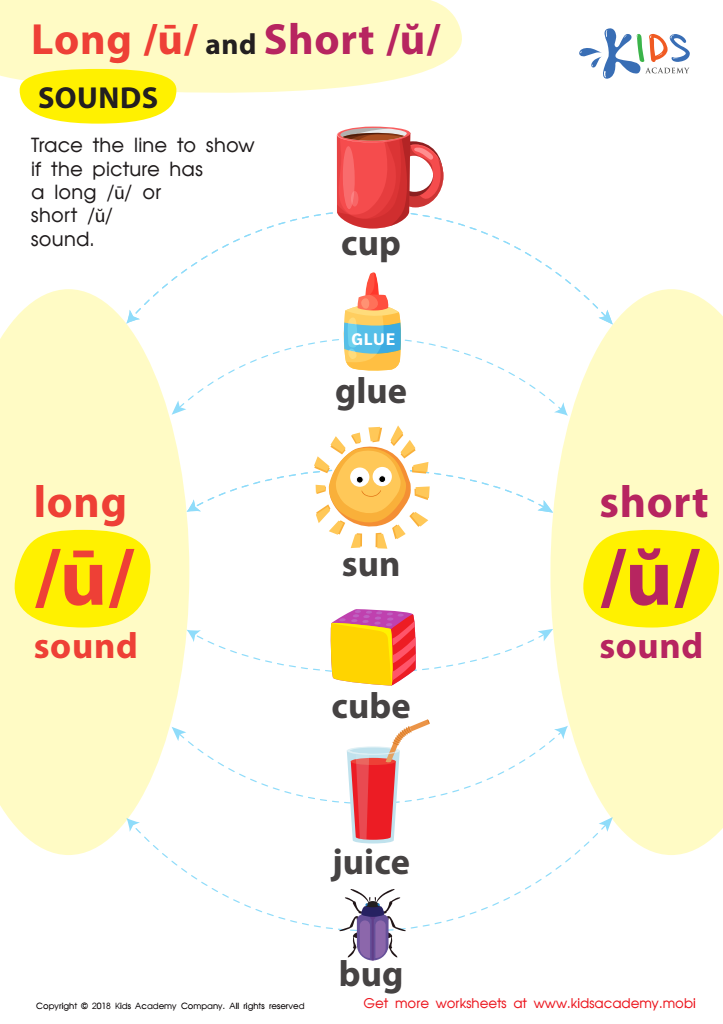

Reading: Long U and Short U Sounds Worksheet


Long Vowel Maze /o/ and /i/ Worksheet
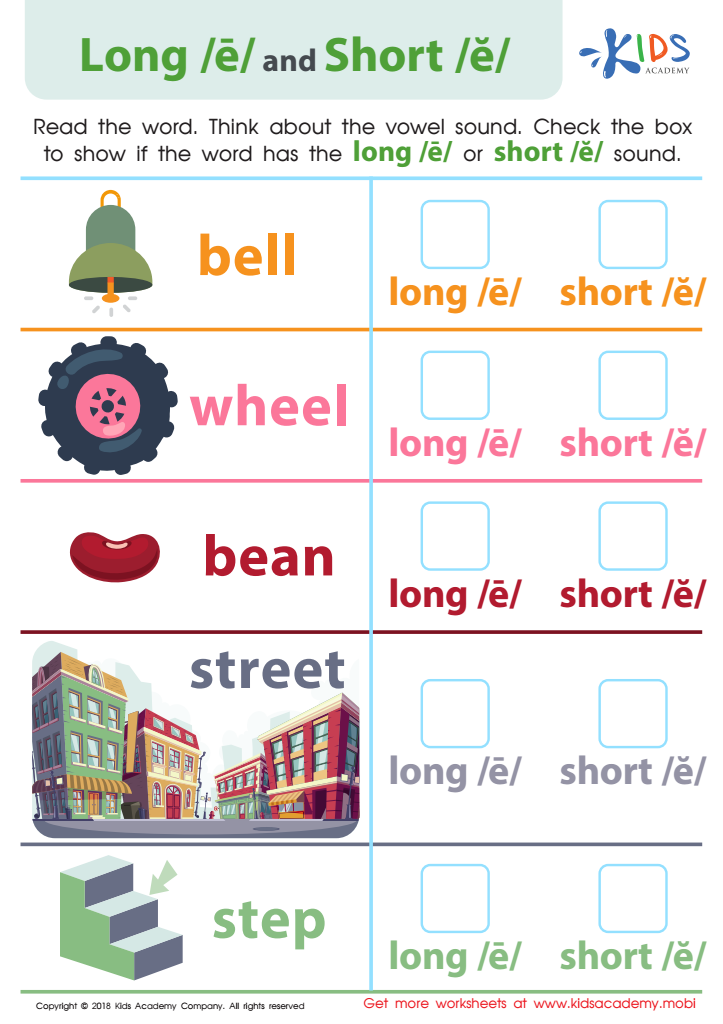

Reading: Long E and Short E Worksheet
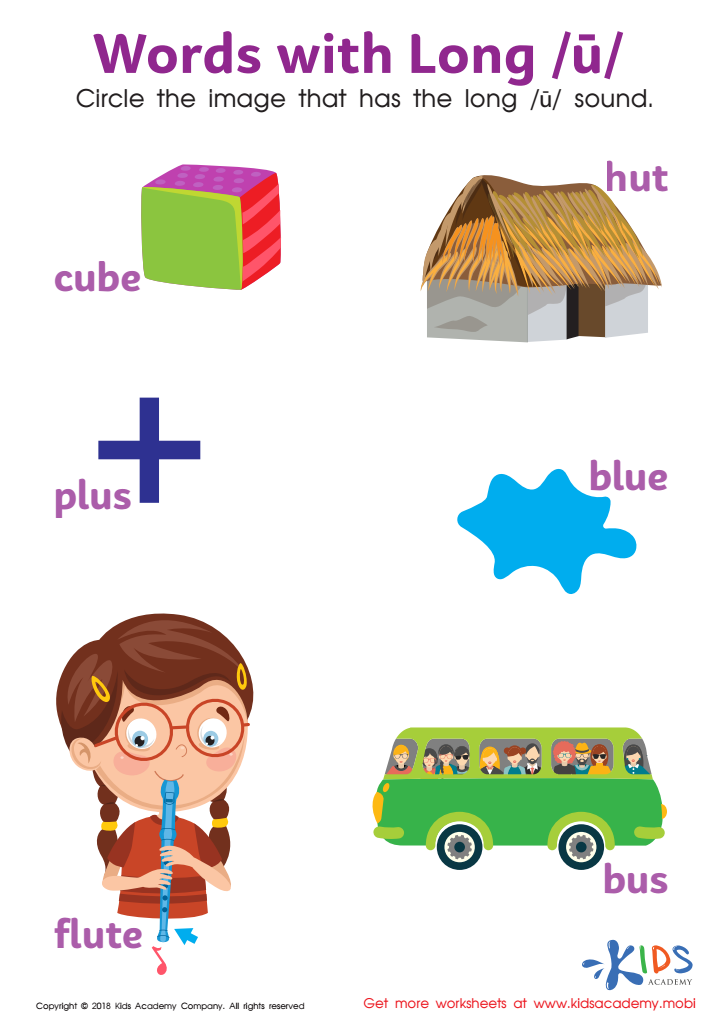

Words with Long U Reading Worksheet
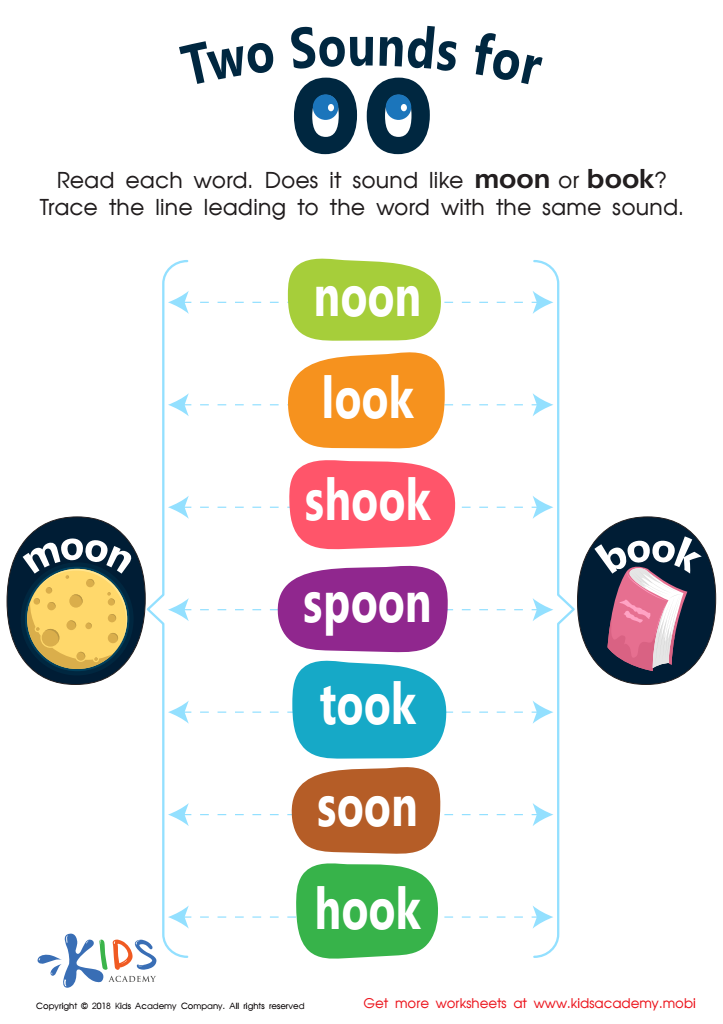

Two Sounds for OO Worksheet
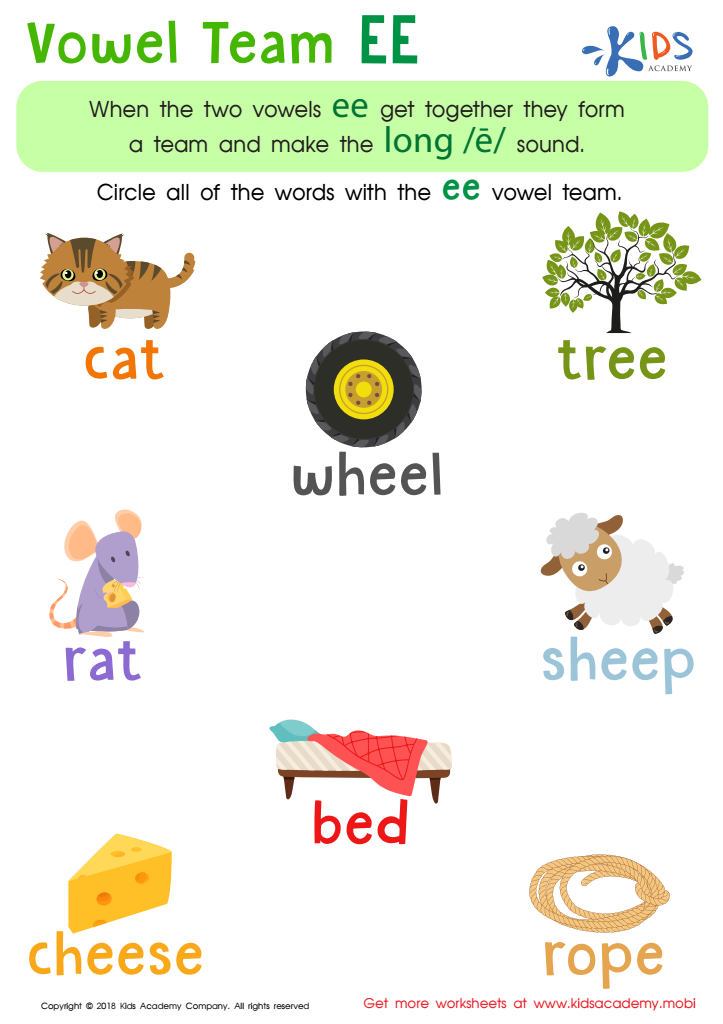

Reading: Vowel Team EE Worksheet
Phonics skills, particularly understanding normal, long, and short vowels, are fundamental in early childhood literacy. Parents and teachers should prioritize these skills for children aged 6-7 because they form the building blocks for reading and writing. Mastery of phonics helps children decode words efficiently, which boosts their reading accuracy and fluency. This, in turn, enhances comprehension and allows children to read more complex texts as they progress academically.
Knowledge of vowels is crucial because vowels appear in nearly every word in the English language. Understanding the difference between long and short vowels enables children to recognize and pronounce words correctly. For example, knowing that the "a" in "hat" is a short vowel sound while the "a" in "cake" is a long vowel sound helps children decode unfamiliar words and improve their spelling skills.
Early phonics instruction sets a solid foundation, reducing the likelihood of reading difficulties later on. For parents and teachers, focusing on these skills provides children with the tools they need for academic success and fosters a love for reading. Ensuring children are confident readers by supporting their phonics development leads to improved academic performance, greater imagination, and a lifetime of learning and curiosity.

 Assign to My Students
Assign to My Students












